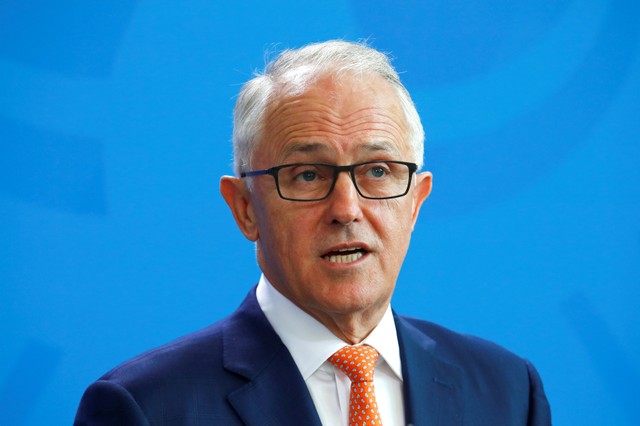SYDNEY,14 JUNE 2018 (THE GUARDIAN/REUTERS) – The Australian government has stepped in to help build a key piece of infrastructure for the Solomon Islands, as concerns about Beijing’s attempts at “soft diplomacy” continue to grow.
Malcolm Turnbull announced that Australia would jointly fund construction of an underwater telecommunication cable network, which will link remote Solomon Islands communities to Honiara.
Huawei had been earmarked to build the cable, after the Solomons originally awarded the contract to the Chinese company – a move that prompted Australian intelligence and security chiefs to warn against the deal.
The cable is to have an Australian link point, to allow the Solomons and Papua New Guinea to connect to Australia’s fibre optic cable infrastructure. Sydney, Townsville and the Sunshine Coast are all being considered as connection points.
Huawei has been banned from government contracts to build Australian infrastructure over concerns that its links to the ruling Chinese communist government could jeopardise Australia’s security.
Last year Nick Warner, who heads the Australian Secret Intelligence Service, the agency which deals with foreign intelligence, was reported to have warned the former Solomons prime minister Manasseh Sogavare against Huawei’s involvement.
Australia stepped in to fill the gap, with funding put aside for the 4,000km cable in the budget.
While foreign aid funding was frozen, Australia has concentrated its efforts on the Pacific, after reports about the concessional loans Beijing has been providing countries in the region have concerns that China is seeking to increase its influence in the region.
Of the $4.2bn (US$3.1 billion) Australia will spend on foreign aid in the next year, $1.3bn (US$985 million) is earmarked for the Pacific.
Julie Bishop said the Solomon Islands accepting the Australian offer made sense, as it was “cheaper” and “likely to be faster results for them, and technically superior”.
“We put up an alternative, and that’s what I believe Australia should continue to do,” Bishop said. “We are the largest aid donor in the Pacific.
“We are a longstanding partner of the Solomon Islands and I want to ensure that countries in the Pacific have alternatives, that they don’t only have one option and no others, and so in this case, we are in a position to be able to offer a more attractive deal for Solomon Islands and Papua New Guinea and they accepted it.”
Turnbull attempted to play down the security concerns about the cable, saying instead Australia was happy to see the Solomons and PNG grow.
“There have been a number of cable projects that have been contemplated, with respect to the Solomon Islands over the years,” he said.
“You’ve referred to one of them. What we are doing is providing very practical and substantial support and aid as part of our foreign aid program, to provide that telecommunications infrastructure which will ensure that the Solomons Island has access to 21st century telecommunications, which, as I was discussing with the prime minister [Rick Houenipwela] today, it is going to be vital for education, for commerce, for economic development, in every aspect of their society, just as it is in ours.”
A Huawei spokesman told Reuters it was never informed of any security problems with its planned cables for the Solomons.
Huawei has faced scrutiny from security authorities around the world and especially in the United States, where it was the subject of a 2012 investigation over whether its equipment provides an opportunity for foreign espionage – something the company has consistently denied.
It was blocked on security grounds from working on Australia’s national broadband system in 2012.
Australia’s broadband network itself has come under fire at home for poor service and slow speeds. With an average internet speed of 11.1 megabits per second, Australia ranks 50th in the world, according to the most recent State of the Internet report by Akamai Technologies, a specialist in internet speed technology.



